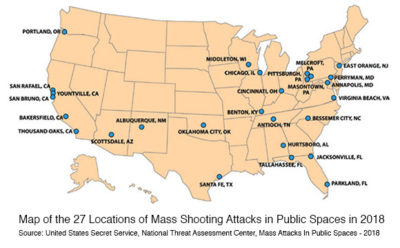The much-anticipated Special Session called by Governor Northam to address the challenges of gun violence in the Commonwealth ended abruptly on Tuesday, July 9, 2019, when the House Republicans adjourned until November 18, several weeks after the fall election. Democrats introduced eight common-sense measures designed to address gun safety. These included universal background checks for all gun sales, and a bill to create an Emergency Risk Protective Order (ERPO) designed to remove guns from people who, due to a mental health situation, pose a risk of injury to themselves or others.
I was the designated patron for HB 4009, a bill that would have conformed Virginia’s statute on protective orders to provisions in federal law that prevent individuals subject to such orders from possessing a firearm; we already prohibit people from “owning and transporting” a firearm while subject to a protective order. This bill is similar to one I introduced in 2008, which had the support of a broad cross section of Commonwealth’s Attorneys, sheriffs, and state police. It was defeated in a Republican-led committee when the dominant gun rights group in the Commonwealth, the Virginia Citizens Defense League, testified against it. Similar bills have been introduced in the decade since, but they all have been defeated.
Yesterday, not a single one of the 63 bills filed for special session got a hearing; Republican leadership in both chambers instructed their committees to table most of the measures — including the eight Democratic bills — and simply adjourn until November 18.
Broad Public Support
Republicans claimed that they needed more time to study these bills. That argument made little sense since most of these bills had been introduced in previous sessions. The proposal to enact universal background checks for all gun sales, an idea that a 2019 Quinnipiac poll said has the support of 93% of Americans, including 89% of Republicans and 87% of gun owners, has been introduced in various forms each year since the Virginia Tech shooting in 2007. The proposal to enact an Emergency Risk Protection Order (ERPO), which was recently enacted in Florida, had also been introduced in earlier Virginia legislative sessions. The approach has the support of Vice-President Mike Pence, Republican Governor Mitch Daniels of Indiana, Republican Senator Marco Rubio, Republican Governor Rick Scott of Florida, and even President Donald Trump’s Commission on School Safety. The concept also enjoys broad public support: an April 2018 poll found that 85% of registered voters support laws that would “allow the police to take guns away from people who have been found by a judge to be a danger to themselves or others.” According to a Wason Center poll, more than 80% of Virginians support this measure. Under the proposed bill, a law enforcement officer could file a petition with the court requesting that a person experiencing a mental health situation who poses a substantial risk of personal injury to others or to him/herself should have his or her weapons removed until such time as the crisis was over. Due process provisions were included so that a person subject to the order would have a right to a hearing before a judge before any temporary order was extended for a period longer than 14 days.

Clues of Intention to Harm
The adjournment comes at a time when the U.S. Secret Service just issued a report on mass attacks (find it here) occurring in the United States in 2017-2018, which included the mass shootings at Marjory Stoneman Douglas High School in Parkland and at the Tree of Life Synagogue in Pittsburgh. It found that one-third of the perpetrators of these attacks had a history of serious domestic violence. Almost all of the attackers had made threatening comments prior to their action, and more than three-quarters had acted in a way that worried others before their attack. This new study reaffirms previous findings by the FBI and others that mass shooters often provide some clues about their intentions before they act.
Many mass shooters, and many people considering suicide, provide some measure of advance notice before they act. The ERPO proposal is an evidence-based approach that would give people greater opportunity to intervene and prevent serious action with a firearm. The Virginia Tech shooter evidenced substantial dysfunction on many occasions prior to his action. If an ERPO law had been in effect, perhaps he could have been identified and guns removed from his possession prior to the attack that took 32 lives.
Duck and Cover
Most observers believe that there will be no further meetings of the General Assembly until after the November election so that Republicans can duck having to discuss these issues in Richmond. It will be difficult for them to evade, however, the broad discussion now occurring everywhere in the Commonwealth about gun safety, especially in light of the election coming this fall, when all 100 seats in the House and 40 seats in the Senate are up for election. It appears that votes on gun safety measures will not come from legislators in Richmond this summer, but instead from voters across the Commonwealth this November. “The only way these measures will have any chance of being considered, voted on and enacted,” today’s Washington Post editorial noted, “is if the equation of the General Assembly changes with the election of lawmakers who put public safety ahead of the interests of the gun lobby.”
